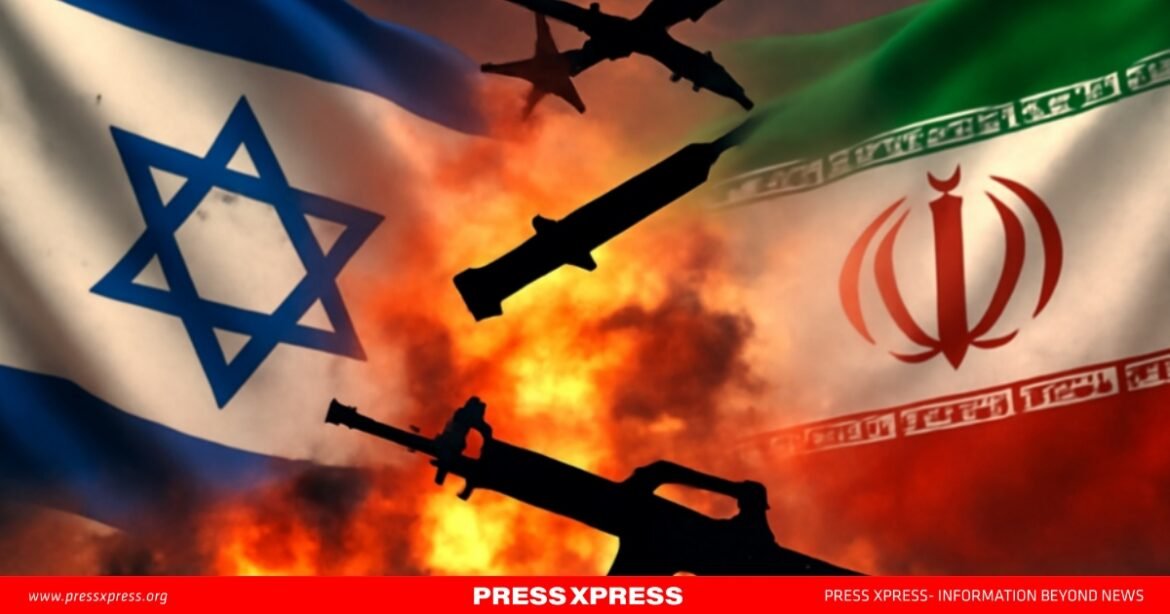Tensions between Israel and Iran have reached alarming levels as of May 11, 2025. While the two states are not directly at war, the region is witnessing a dangerous escalation through proxy warfare, cyberattacks, and drone strikes—raising fears of a broader Middle East conflict.
Recent Developments: Missiles and Cyber Warfare
In early May, Iran-backed Houthi rebels in Yemen launched a ballistic missile targeting Israel’s Ben Gurion International Airport, injuring at least eight people and causing significant disruption. This was the fourth such missile attack in recent weeks, marking a clear intensification of Iran’s indirect military pressure.
In parallel, both countries are actively engaged in cyber warfare. Israel has reportedly targeted Iran’s nuclear infrastructure with sophisticated cyber operations, while Iran has retaliated by launching cyberattacks on Israeli banking networks, hospitals, and communication systems. These digital confrontations are reshaping the nature of conflict in the region.
The Role of Proxies: Iran’s Shadow Strategy
Iran’s approach to regional dominance heavily relies on proxy forces, collectively known as the “Axis of Resistance.” This includes:
- Hezbollah in Lebanon
- Hamas and Palestinian Islamic Jihad in Gaza
- Houthi rebels in Yemen
These groups operate on the front lines of Iran’s strategic interests, carrying out attacks on Israeli and U.S.-aligned targets while providing Iran plausible deniability. For instance, Hezbollah has intensified operations along the Israel-Lebanon border, and Houthis have targeted international shipping lanes in the Red Sea, disrupting trade and drawing global attention.
This asymmetric strategy allows Iran to project power across the Middle East without engaging in direct confrontation—making it more difficult for global powers to respond uniformly.
U.S. Involvement and Strategic Calculations
The United States, under the current Trump administration, has taken a hardline stance against Iran. In recent months, the U.S. has conducted over 800 airstrikes against Houthi positions in Yemen, reinforcing its commitment to protecting Israel and curbing Iranian influence in the region.
President Trump has also issued stern warnings regarding Iran’s nuclear ambitions, indicating that military options remain open if Iran continues to enrich uranium beyond agreed limits.
This strategic alignment signals the growing possibility of a direct confrontation, especially if Iran crosses thresholds related to nuclear development or escalates proxy attacks.
Regional Implications and the Path Forward
The ongoing Israel-Iran confrontation is not just a bilateral issue but one that affects the entire Middle East. The involvement of multiple state and non-state actors, as well as the potential for small incidents to spiral out of control, increases the risk of a broader, full-scale war in the region.
For the situation to de-escalate, diplomatic efforts must be prioritized. Regional powers, including countries like Saudi Arabia and the United Arab Emirates, along with international stakeholders such as the U.S., must work together to mediate peace. Addressing long-standing grievances, improving communication, and building trust between the involved parties will be crucial steps toward avoiding further conflict.
The Way Forward: Preventing a Full-Scale War
Preventing a larger war will require active diplomacy and conflict de-escalation efforts. Regional actors like Turkey, Qatar, and even India may play mediating roles, while organizations such as the United Nations and European Union must push for immediate diplomatic engagement.
Efforts should focus on:
- Establishing communication channels between Israel and Iran
- Reducing the activities of proxy groups through dialogue and pressure
- Reinitiating nuclear negotiations with clear timelines and verification mechanisms
The Israel-Iran conflict is evolving rapidly through proxy confrontations, cyberattacks, and geopolitical maneuvering. While it is not yet a full-scale war, the risk of miscalculation is dangerously high. Unless the international community steps in with coordinated and meaningful diplomacy, this shadow war could ignite a broader and more devastating regional conflict.


